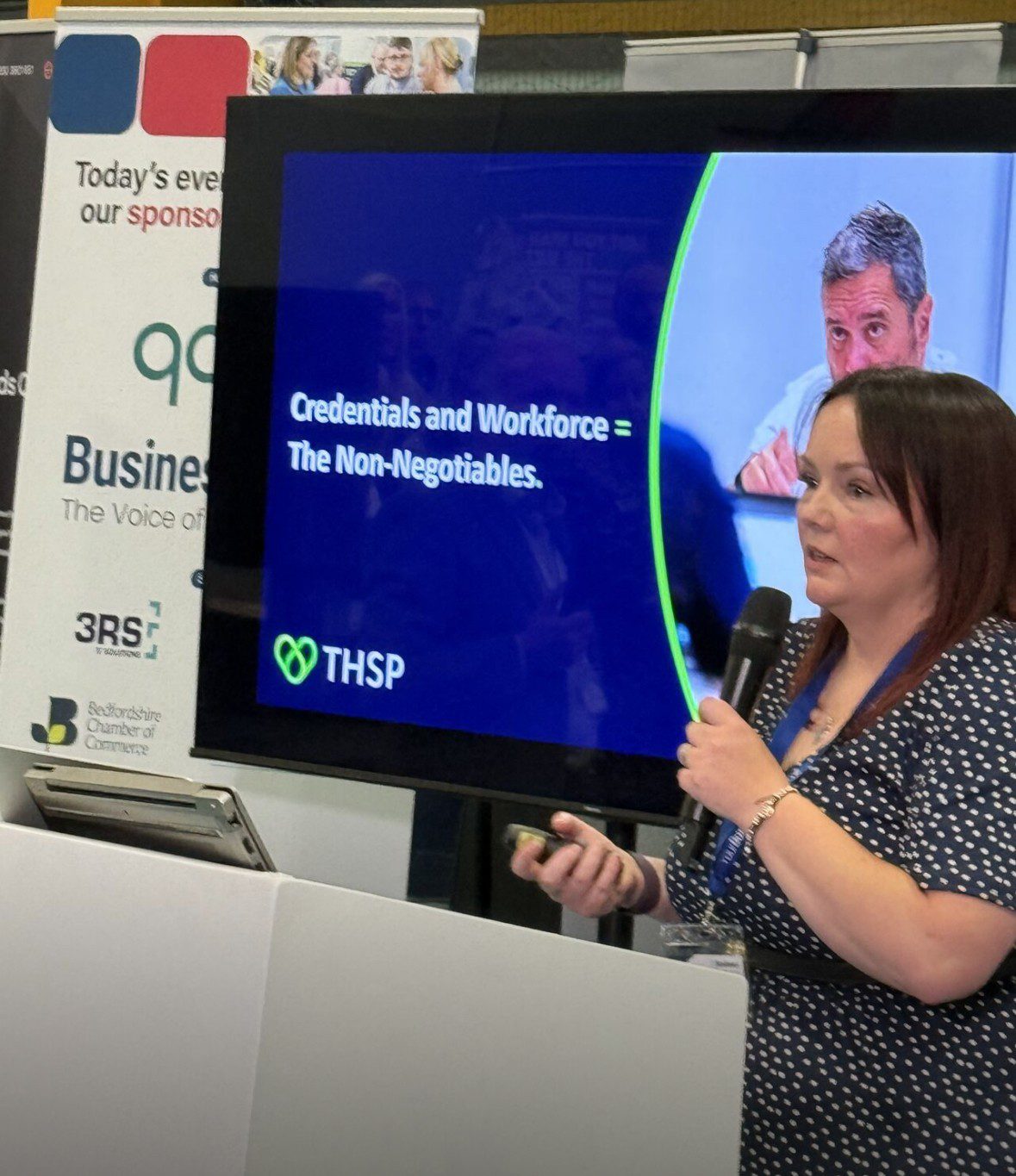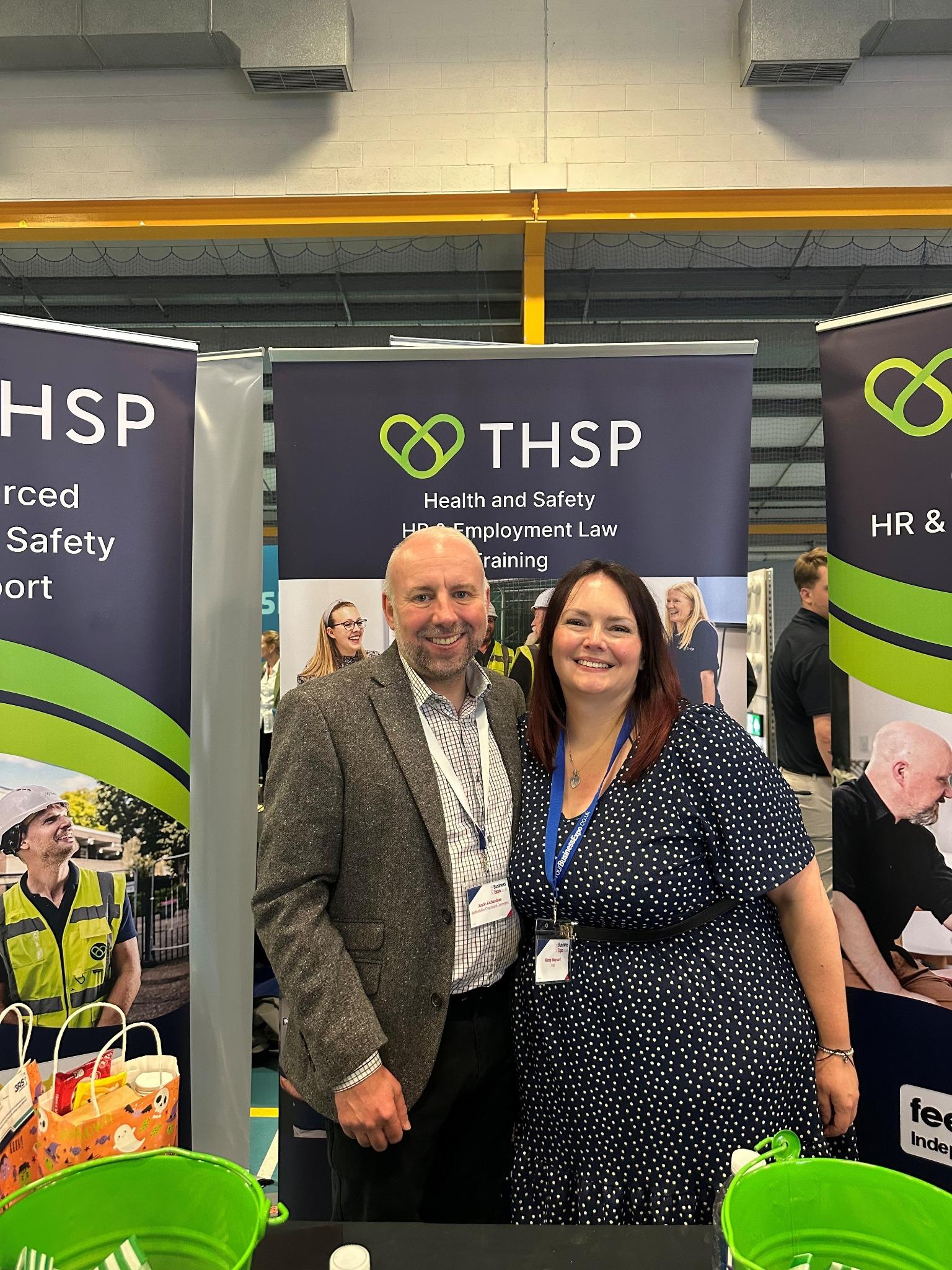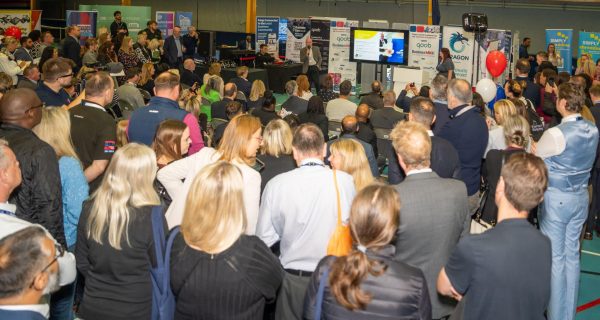
Universal Studios Bedford will reshape our region. Over the next decade, the development is forecast to deliver £50 billion in economic impact, create around 20,000 construction jobs, and sustain 8,000 long-term operational roles once open. It is the scale of building a new Bedford town centre every year for ten years, and it is happening right here on our doorstep.
The opportunity is huge. But opportunity does not automatically mean access. Projects like this demand readiness, resilience and professional credibility. The businesses that start preparing now, through strong compliance, skilled people and smart partnerships, will be the ones ready to walk through the gate when it opens.

Across Universal’s global resorts, between 30 and 40 per cent of the total supply chain is typically sourced from local businesses. That is a genuine commitment, but it comes with expectations. Universal works at scale. It expects suppliers who can deliver consistently, meet strict health, safety and quality standards, and align with its culture of innovation. The company is not looking to replicate its existing supplier base; it is looking for distinctive, local solutions that bring value and agility.
Universal describes its resorts as being “like running a city.” Each one operates as a self-contained ecosystem that never stops moving, with construction, engineering, transport, cleaning, catering, maintenance, technology, security and guest services all working together. They need reliable partners who can anticipate problems and act fast to solve them.
An official announcement on the project is expected soon, with construction beginning in 2026 and opening projected for 2031. The message from Universal is clear: engagement will happen, but it will happen at the right time. Those who are prepared will be ready when it does.
How the Supply Chain Works
On large developments, supply chains form in layers. Tier 1 contractors lead the civil, structural and major engineering works. They appoint Tier 2 specialists for trades, logistics, plant, temporary works and professional services. Those Tier 2s then bring in Tier 3 suppliers, the local subcontractors, trades, facilities, waste and support services that keep the project moving every day.
Most Bedfordshire businesses will sit within those lower tiers, and that is where the real opportunity lies. The local advantage is speed, flexibility and proximity: the ability to keep Tier 1 and Tier 2 partners on schedule, respond quickly and maintain the high standards expected across the site. The same layered model will continue beyond construction. Once the park opens, it will extend to cleaning, catering, maintenance, hospitality and facilities management. Different phase, same principle.
Compliance is Your Competitive Advantage
Tendering for major projects is not just about price. Procurement is risk management. Buyers want confidence that you can operate safely, legally and reliably.
In most competitive tenders, evaluation typically follows a weighted scoring model 40% technical capability, 30% commercial pricing, and 30% compliance and social value. That final third is often the difference between winning and losing. Strong governance, ethical practice and verified systems show you are a low-risk, high-trust partner, even if your price is not the lowest.
At THSP, after decades of helping organisations build compliance systems that stand up to audit and prequalification, we know exactly what buyers look for. There are five things you will always be asked for, and one that is becoming increasingly important for Universal.
-
Company Information and Track Record
Every prequalification begins with the basics: who you are, what you do and why you are credible. Expect to provide company registration and VAT numbers, directors’ details, trading history and turnover, company structure and ownership, key services and locations, and references or case studies that show performance on similar projects. You may also need to declare any prosecutions or enforcement notices. This is not just administration; it is where buyers begin to assess reliability. Clear, accurate company information builds trust before a single policy is read. Think of this as your bid toolkit.
-
Health, Safety and Environmental Evidence
You will need a current, signed health and safety policy, risk assessments and method statements that reflect your actual work, and proof that training and supervision are in place. Buyers will expect evidence of accident and near-miss records, toolbox talk logs and environmental management activity such as waste control, emissions reduction and sustainability initiatives.
-
Workforce and Employment Compliance
Demonstrate that your workforce and supply chain are legal, fair and consistent. This includes right-to-work checks, employment contracts, equality and inclusion policies, and how you manage subcontractors or agency workers. Procurement teams increasingly assess how you treat your people as an indicator of how you will perform on site.
-
Insurance and Financial Stability
You will be asked to show Employers’ and Public Liability Insurance, usually at £10 million, and Professional Indemnity Insurance where relevant. Buyers will also review your financial accounts or credit rating to assess resilience. For smaller businesses, management accounts or an accountant’s statement can often provide suitable evidence of stability and transparency.
-
Competence and Accreditation
Prequalification systems such as SSIP or the Common Assessment Standard verify that you meet recognised standards for safety, quality and environmental management. Accreditations including CHAS, SafeContractor, Constructionline and ISO 9001, 14001 and 45001 demonstrate readiness and professionalism can speed up onboarding with Tier 1 contractors.
-
Social Value and Sustainability
Modern tenders increasingly assess how your business contributes beyond compliance. Buyers look for evidence of local employment, apprenticeships, community investment and environmental responsibility. Authentic examples such as hiring locally, supporting schools or reducing waste carry more weight than corporate statements.

Let Experts Take the Strain
For many smaller firms, keeping all this watertight can feel overwhelming. Compliance takes time, and time is often the rarest resource in any business. Yet the difference between being ready and being ruled out is often a single detail: a missing training record, an expired insurance certificate or an unreviewed policy. We have seen contractors lose tenders for an outdated document and win the next one after an hour of professional support.
You do not have to do it alone. Bedfordshire has exceptional expertise in health and safety, HR, data protection, ISO management and financial governance. Using that support early saves time, reduces risk and builds a stronger bid foundation. Compliance does not slow you down; it helps you move faster when opportunity lands.
Collaborate to Compete
Universal’s teams have been clear that they want long-term local partnerships, not one-off suppliers. Across previous projects, small and medium enterprises were encouraged to collaborate and present joint capability. A cleaning firm partnering with a waste contractor and a logistics specialist looks more resilient, scalable and capable of handling complex site needs. Partnerships make life easier for Tier 1 contractors and help local businesses grow together. The Bedfordshire Chamber of Commerce is ideally placed to support that collaboration, connecting businesses that share values and standards. Collaboration is not weakness; it is how smaller companies look bigger than they are.
A Carded Workforce
During construction, every person on site will need valid, in-date certification. No card means no site entry, and that rule will be non-negotiable. A carded workforce proves your people are trained and competent. It shows that you invest in safety and understand the culture of accountability that large contractors expect. Training and carding take time, so start now. A competent workforce is not built in a week, but it is what gets you through the gate.

The Fast-Track Advantage
Accreditations are the fast pass to the supply chain. They show that your systems already meet recognised standards for quality, environment and health and safety, and they move you to the front of the queue. CHAS, Constructionline, SafeContractor and ISO certifications demonstrate professionalism and remove doubt for Tier 1 contractors. When timeframes tighten, accredited suppliers are onboarded faster because they are already trusted.
The Knock-On Effect for Bedford
Economists call it the halo effect: the benefits that spread far beyond the site itself. Every pint pulled, every hotel bed filled, every meal served and every uniform cleaned represents new opportunity. Even if you never work directly inside the park, the park will touch your business. Universal Bedford will transform more than the construction landscape. It will create new demand across housing, transport, hospitality, education, healthcare and professional services. This is not just Universal’s project; it is Bedfordshire’s opportunity.
The Tender Readiness Audit
Readiness is not about hope; it is about evidence. Before any major contract is awarded, procurement teams will ask for proof. This simple ten-point audit helps you see how close you are to being truly tender-ready.
- Have you registered on the Universal supplier portal so you are visible early?
- Are your health and safety, HR and compliance policies reviewed and current?
- Do your case studies show measurable results rather than activity?
- Can you demonstrate sustainability and social value in action, such as local employment, community support or environmental responsibility?
- Is your bid toolkit complete, with CVs, qualifications and testimonials ready to submit?
- Are you active in the The Chamber of Commerce and local networks where opportunities are first shared?
- Are your insurances current and sufficient for your scope of work?
- Can you provide recent financial accounts showing stability?
- Are your training and competence records up to date, including CSCS, fire and first aid certification?
- Can you upload everything quickly and digitally when a buyer requests it?
If you can answer yes to most of these, you are already in a strong position. If not, that is your next action plan. Each improvement you make now moves you closer to being contract-ready when tenders open.
Universal Studios Bedford is more than a project; it is the catalyst for a decade of growth. The businesses that prepare early, invest in their systems and people, and connect through the Chamber network will be ready to make the most of it.
Readiness is not about size. It is about standards. And now is the time to raise them.
So, here’s my challenge.
Pick just one thing this week that gets you closer to that opportunity – because readiness starts with action.
- Register on the Universal supplier portal link
- Fix one compliance gap – a policy, risk assessment, accreditation or CSCS training
- Draft one short case study that shows results, not just activity
- Join the Chamber or a local business network
- Reach out to a potential partner and explore collaboration
- Use a local provider
- Sponsor a grassroots sports team
- Support a local charity
It doesn’t matter which one you start with – what matters is that you start.
The businesses that prepare now, and that are visible in the right networks, will be the ones who win later. This opportunity will not wait. Universal will not lower its standards because you are local.
The gates will open. The only question is: will you be ready to walk through?
For advice on getting your business contract-ready, contact Kirsty Maynard, Commercial Director at THSP – kirsty@thsp.co.uk.

